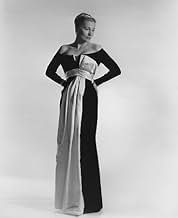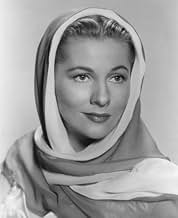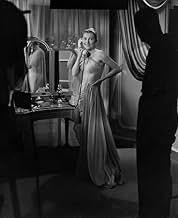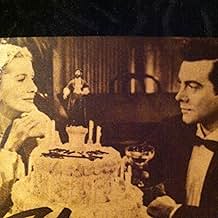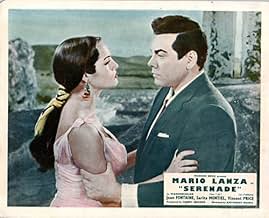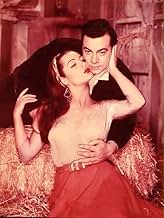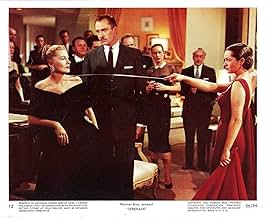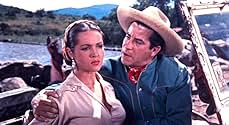Serenade is far and away Lanza's most interesting movie. True, The Great Caruso is a more accessible film (and the best introduction to Lanza), but Serenade packs a far greater punch. This is melodrama to the nth degree, and fittingly it contains some of the finest dramatic singing ever recorded.
Let's get the quibbles out of the way first. Injudicious editing has made some of the scenes appear silly and illogical. The speed with which Lanza becomes obsessed with Joan Fontaine seems absurd, and the ending could have been so much better. Would that the scenarists had had the courage to follow more closely the James Cain novel on which this movie is based, but then again, this was Hollywood, 1955. Had the movie been made without the censorship constraints of, say, a mere ten years later, it could have been a masterpiece. All I can say is, read the novel and you'll see what I mean!
I would also criticize Anthony Mann's direction at times. Re-takes of some of Lanza's hammier moments should definitely have been made, and the film lacks (at times) the full dramatic treatment that its subject deserves. Re-takes of Lanza's Nessun Dorma and Di Quella Pira should also have been made. In both arias he sounds uncharacteristically strained, and in each case a second take would have sorted out the problem.
Quibbles aside, Lanza's acting is often outstanding (the Ave Maria scene, for instance, is a revelation). Vincent Price, Lanza's acid-tongued and hilarious manager in the movie, later remarked off-screen how impressed he was with the tenor's dedicated approach to his acting. Sarita Montiel is also outstanding in her role as a fiery Mexican bullfighter's daughter, providing Lanza with his best-ever leading lady.
But what makes this film a vocal masterpiece is Lanza's singing. La Danza, Torna a Surriento, Amor Ti Vieta, O Paradiso, the Otello Monologue (Dio! Mi potevi scagliar...) and the heart-rending Lamento Di Federico are all astonishing feats of singing. By 1955 Lanza's voice had darkened into a lirico spinto tenor that often borders on the dramatic. It is rare indeed to hear a tenor with such baritonal fullness AND a ringing tenorial top. (Eat your heart out, Placido Domingo!) Lanza For my money, the Otello Monologue is the pinnacle of Lanza's operatic legacy, and the finest recording of this aria. The scene in which it appears is also brilliantly acted by Lanza. As the critic John Cargher would later remark, Lanza's rendition of the Otello Monologue alone "would assure him of immortality."
All criticism aside, Serenade remains a source of immense pleasure to me, and it is richly deserving of far wider appreciation.


